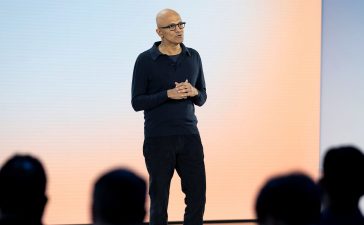Pope Francis urged world leaders to establish an international treaty regulating AI, and warned against relying on machines to make moral and ethical decisions that should be left to humans.
In a message ahead of annual World Peace Day – which is celebrated by Catholics on New Year’s Day – His Holiness addressed the rise of AI and the broad risks the tech could pose.
Although he recognized that technological advances could improve the quality of life, he advised against using it for particularly risky applications that could exacerbate inequality and conflict. Presumably that sort of thing should be left to the experts – humans.
“We cannot presume a priori that its development will make a beneficial contribution to the future of humanity and to peace among peoples,” he pontificated. “That positive outcome will only be achieved if we show ourselves capable of acting responsibly and respect such fundamental human values as ‘inclusion, transparency, security, equity, privacy and reliability’.”
The leader of the Catholic Church added that the responsibility to build AI safely fell on sovereign states and international organizations, who can come together to enact a global agreement that will mitigate the technology’s harms. “I urge the global community of nations to work together in order to adopt a binding international treaty that regulates the development and use of artificial intelligence in its many forms.”
AI is often overhyped. Despite all the flashy feats performed by the latest generative AI models capable of producing art or writing stories, the pope rightly observed that machines can only imitate “certain functions of human intelligence.” Even if they become smarter, he warned against relying on them to make judgements that impact people’s livelihoods and human rights.
Algorithms that affect things like employment, criminal justice, or social benefits are prone to issues of bias and discrimination, and could drive inequalities on wealth and power on increasingly large scales. Moral and ethical decisions are difficult and should not be left to algorithms no matter how intelligent they may be, he argued.
Yes, when you think of morals and ethics, the first thing that springs to mind is indeed the Catholic Church.
The most dangerous risk, however, lies in the military development of autonomous weapons. Pope Francis argued that the technology could never be “morally responsible subjects” and warned it could fall into the wrong hands and wreak havoc – potentially killing innocent citizens and upending democracies.
He lamented that “the world has no need of new technologies that contribute to the unjust development of commerce and the weapons trade and consequently end up promoting the folly of war. By so doing, not only intelligence but the human heart itself would risk becoming ever more ‘artificial’.” ®












